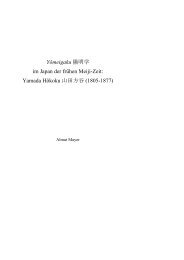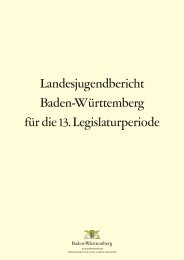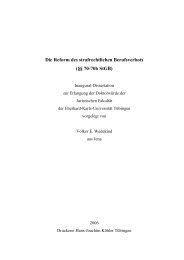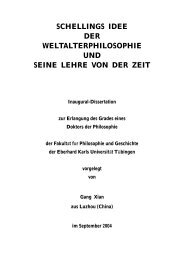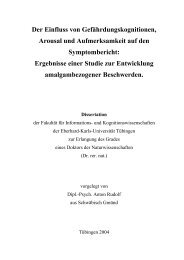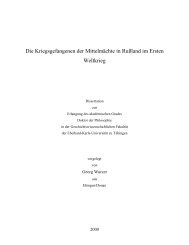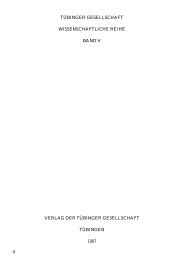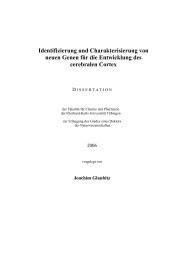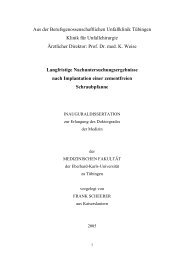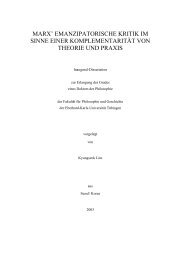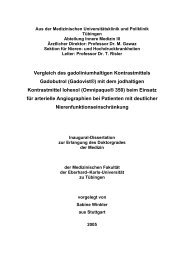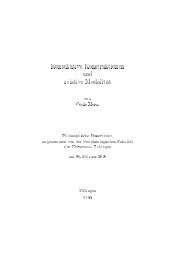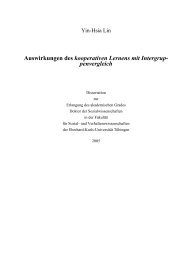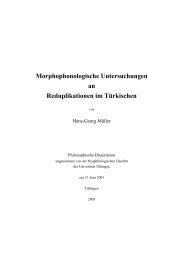Perception verb complements in Akatek, a Mayan language
Perception verb complements in Akatek, a Mayan language
Perception verb complements in Akatek, a Mayan language
You also want an ePaper? Increase the reach of your titles
YUMPU automatically turns print PDFs into web optimized ePapers that Google loves.
1. BASIC GRAMMATICAL FEATURES 109<br />
(52) a. Him(ERG) hit she(ABS).<br />
b. She/he(ABS) walked.<br />
Provided that the only argument ofan<strong>in</strong>transitive <strong>verb</strong>, <strong>in</strong> (52-b)<br />
she/he(ABS), is de ned as the subject, the issue is whether <strong>in</strong> transitive<br />
constructions the subject is the argument marked alike, <strong>in</strong> (52-a)<br />
she(ABS), or di erent, <strong>in</strong> (52-a) him(ERG), than the subject of an<br />
<strong>in</strong>transitive<strong>verb</strong>. If there is evidence that the argument that is marked<br />
di erently, i.e. with the ergative, is the grammatical subject, then the<br />
<strong>language</strong> is only morphologically ergative, but syntactically like an accusative<br />
<strong>language</strong>. If the argument that is marked alike, i.e. with the<br />
absolutive, turns out to be the grammatical subject, the <strong>language</strong> is<br />
syntactically ergative.<br />
<strong>Mayan</strong> <strong>language</strong>s <strong>in</strong> general and <strong>Akatek</strong> <strong>in</strong> speci c are morphologically<br />
ergative. In addition, NPs encod<strong>in</strong>g core arguments of the <strong>verb</strong><br />
are optional adjuncts, while the pronom<strong>in</strong>al a xes on the <strong>verb</strong> are the<br />
arguments. As a result, the question which NP is the notional subject<br />
becomes obsolete, s<strong>in</strong>ce NPs are adjuncts and their grammatical status<br />
must be retrieved from the pronom<strong>in</strong>al arguments su xed to the <strong>verb</strong>.<br />
Therefore, the question which has to be raised for <strong>Mayan</strong> <strong>language</strong>s<br />
is whether the ergative (set A) or the absolutive (set B) pronom<strong>in</strong>al<br />
argument on the <strong>verb</strong> represents the grammatical subject. Of course,<br />
this question only applies to transitive constructions, unless one proposes<br />
an analysis <strong>in</strong> which absolutive arguments are direct objects <strong>in</strong><br />
both transitive and <strong>in</strong>transitive constructions as Larsen (1987) has<br />
suggested.<br />
The discussion <strong>in</strong> the past has focused on NPs and not on the<br />
pronom<strong>in</strong>al arguments. A variety of approaches to the analysis of the<br />
subject <strong>in</strong> ergative <strong>language</strong>s has been suggested.<br />
Anderson (1976) claims that syntactically ergative <strong>language</strong>s are<br />
like accusative <strong>language</strong>s and that therefore the basically syntactic notion<br />
of `subject' has the same reference <strong>in</strong> either <strong>language</strong> type. The difference<br />
between the subject <strong>in</strong> ergative <strong>language</strong>s and the subject <strong>in</strong> accusative<br />
<strong>language</strong>s comes down to the fact that <strong>in</strong> accusative <strong>language</strong>s,<br />
syntactic and morphological categories correspond to each other more<br />
straightforwardly than <strong>in</strong> ergative <strong>language</strong>s. In ergative <strong>language</strong>s the<br />
grammatical relations of the NPs to the <strong>verb</strong> as well as the <strong>verb</strong>'s transitivity<br />
play a role <strong>in</strong> determ<strong>in</strong><strong>in</strong>g case mark<strong>in</strong>g and agreement patterns.<br />
Anderson discusses two exceptions: Dyirbal and Hurrian. In both <strong>language</strong>s,<br />
absolutive NPs, i.e. <strong>in</strong>transitive subject NPs and transitive<br />
object NPs, are treated alike <strong>in</strong> syntactic processes like Equi-NP deletion,<br />
conjunction formation or relativization (for details see Anderson



